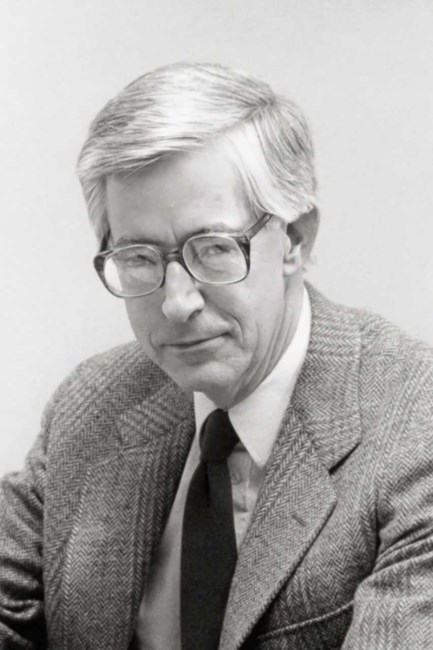
OBITUARY
John R Knott Jr.
9 July, 1937 – 2 January, 2024

John Knott, 86, died January 2, 2024. He was the son of John Ray Knott and Wilma Henshaw Knott of Memphis, who supported what proved a critical decision to leave the South for college at Yale. He sang in the freshman Glee Club, was a member of the Elizabethan Club and Elihu senior society, and was chairman of Yale Banner Publications. He graduated in the Class of 1959 magna cum laude with honors in English. He stayed another year at Yale as a Carnegie Fellow, teaching freshman English, before entering graduate school at Harvard, where he earned a Ph.D. (1965) and taught for two years as an Instructor in English. He met his future wife Anne Percy, on a blind date arranged by a Vassar alumna when Anne was about to leave Memphis for Vassar. Marriage and four children later, by 1967 the young family was established in Ann Arbor where John would spend his academic career.
At the University of Michigan John developed a national reputation as a scholar of early modern literature, with books on Milton’s Paradise Lost, on English Puritan uses of the Bible, and on the literature of protestant martyrdom. Late in his academic career he shifted the focus of his teaching and writing to the emerging field of environmental literature, to which he contributed books on wilderness and on evolving attitudes toward the northern forest. This new interest was stimulated by canoeing adventures with Anne, mainly in the Temagami region of northern Ontario, and on a particularly memorable trip down Alaska’s Noatak River. Challenging hiking trips followed, including New Zealand’s Milford Track, England’s Coast to Coast Walk, and Spain’s Camino de Santiago. Although John and Anne traveled widely, they were drawn by the clear, cold water and granite shoreline of Ontario’s Lake Temagami and spent several summer weeks there for three decades.
John was an enthusiastic and skillful teacher who welcomed opportunities to develop new courses, including a popular one in literature of the American wilderness. His extensive administrative service included chairing the faculty committee that planned a new undergraduate program
in environmental studies and as Interim Director was responsible for implementing it. He played a similar role as Interim Director of the fledgling Institute for the Humanities. As Chair of the Department of English in the early 1980s he persuaded his colleagues to offer an MFA program in creative writing and took great pleasure in seeing it grow into one of the best such programs in the country. His greatest administrative challenge was serving as Acting Dean of the College of Literature, Science, and the Arts at a time of intense budgetary pressures (1980-81).
In retirement John pursued an interest in nature photography, attending workshops in the Smokies and in Michigan’s Upper Peninsula. He produced several collections of personal essays whose primary audience was his family. Whatever the demands and opportunities of his professional career, his deepest commitment was to his family: to his wife of 64 years, his children (Catherine, Ellen, Walker, Anne), ten grandchildren, and multiple great grandchildren (six and counting). He loved them deeply and encouraged them in their endeavors.
Over the years he and Anne facilitated several lively family reunions where one of the favorite activities was singing together, especially Appalachian traditional music and spirituals from his early days. Two of his favorites were Leonard Cohen’s “Hallelujah” and the Appalachian spiritual “Who Will Sing for Me?” Recordings of this music gave him great solace in his final days.
He was predeceased by his parents and his younger brother Robert Knott of Winston-Salem, N.C.
Cremation has taken place. There will be a private service for family. Memorial contributions may be made to The Michigan Chapter of The Nature Conservancy, 101 E. Cesar Chavez Ave, Lansing, MI 48906.
Show your support
Add a Memory
Share Obituary
Get Updates
DONATIONS
Services
SHARE OBITUARY
- RECEIVE UPDATES
v.1.8.18